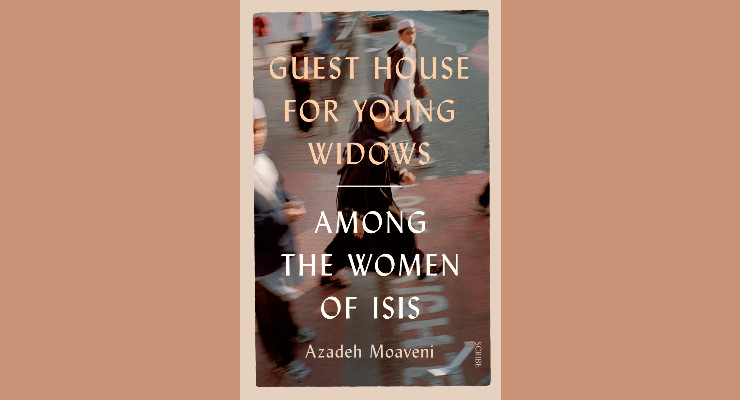
Spring 2014, Raqqa, Syria
Dunya kept her eyes closed in the early-morning heat, refusing to be roused by the child screeching from the neighbouring bedroom.
She and Selim had parted the night before, when he dropped her off at the guest house where arriving women stayed, awaiting husbands who, like Selim, were off doing their military training. The official ISIS employment/identity form listed his religious knowledge as “rudimentary”, so after his weapons training he would do a course of religious instruction.
He was not allowed to use a mobile phone during this period, so for nearly two months Dunya neither spoke to nor saw her husband.
The guest house was something between a hostel and a reality TV show, the days bleeding into one another in a tedium of sameness: cooking, eating, repeating the same inconsequential but sometimes tense conversations. There was no television. There were no books to read. There was nowhere to hide from the ever-present children, who shrieked from boredom and shrieked while playing and generally just shrieked. It was, however, international, and this was something Dunya appreciated. There were women from everywhere coming through: Afghanistan, Saudi Arabia, Tunisia, France, the United States. Most were very young.
The people who migrated from Germany she divided into various groups. The do-gooders, who wanted to fight Bashar al-Assad and then were eventually indoctrinated, inured to the violence. The convert freshies, who didn’t know a thing about Islam and watched the wrong videos and met the wrong people, and were convinced that the path to heaven led through Syria. The psychopaths, attracted to violence. And the submissive women who followed their husbands, who, for whatever reason — codependent personalities, misplaced loyalty, fear of divorce — went along with the plan.
Dunya viewed many of the girls as inexperienced boy-band groupies, having understood ISIS as some kind of trendy rebellion. They watched ISIS videos on their phones and laptops, droning on about the delight of finally living under a caliphate. They huddled together on WhatsApp groups and Facebook groups. Dunya viewed herself as superior to these unsophisticated young women, who seemed only to memorise the words and concepts that had brought them to the Islamic State, without actually understanding what lay behind them.
She had actually studied Islam over the months and years since her conversion. She had some “ilm”, or Islamic knowledge, whereas they mostly seemed to have hormones and attitude.
She slept late. The summer heat made everyone in Raqqa nocturnal, staying up later and later to benefit from the evening coolness, and sleeping through as many hours of the searing day as possible.
She eventually found some other German women in the city to befriend. Even though the caliphate was intended to erase the ties of nation-state and tribe, most women still preferred the company of those like them. Partly this was a matter of simple communication; exuberant pantomiming and Google Translate could take you only so far.
But it was also true that no one shed their prejudices upon arrival in the caliphate. The racist superiority the Saudis felt toward Pakistani or Bangladeshi Britons (“they are not British British”), the superiority the British Asians felt toward the British Somalis, the superiority German Turks felt toward the local Syrians, the superiority the Lebanese and Syrians felt toward the Saudis, the superiority the Syrian Arabs felt toward the Syrian Kurds — none of these impulses dissolved.
Indeed, they were harnessed into sweeping generalisations about who was most hapless in warfare and thus best assigned to suicide operations (Europeans), who was the most brutal (Tunisians), who was the most zealous (Saudis).
About a month after her arrival, Dunya went shopping in the market in Raqqa and saw the bodies of about a dozen men lying on the street. Not even on the side of the street, or in the middle of one of the central roundabouts, but directly on the sidewalk. The shoppers and pedestrians were forced to step around them. Their limbs were splayed out, and their faces were frozen in some final expression.
This is an edited extract from Guest House for Young Widows: among the women of ISIS by Azadeh Moaveni, available now from Scribe.







A must read. Chilling and stark.